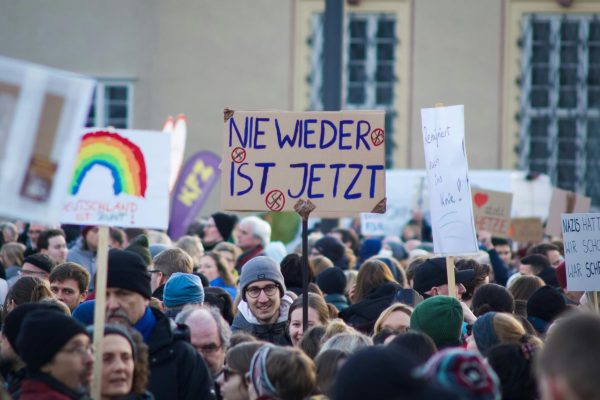Brazil: The Appeal of Bolsonaro

Authoritarianism is nothing new, as many leaders throughout history have adopted the concept of depriving their people of liberty. From Benito Mussolini in Italy to Joseph Stalin in Russia to Adolf Hitler in Germany. However, more recently, numerous modern leaders have embraced this anti-liberal ideology, such as Recep Tayyip Erdoğan in Turkey, Viktor Orbán in Hungary, Bashar al-Assad in Syria, and newly Jair Messias Bolsonaro in Brazil.
Throughout his campaign, Bolsonaro became known for his homophobic, racist, and sexist remarks, and moreover for his extreme nationalism and disregard of minorities. Offensive comments towards women like “I had four sons, but then I had a moment of weakness, and the fifth was a girl” or “I’m not going to rape you [to a congresswoman], because you’re very ugly” clearly expressed his controversial and condescending views. Furthermore, he not only attacks women but also the LGBTQ+ community, revealing that he would “rather have [his] son die in a car accident than have him dating some guy.” His hateful views do not only show his overt disregard for minorities, but he additionally makes a point to say that he is “pro-torture” and that he is in favor of every citizen “hav[ing] a gun at home”.
All of this stands in stark contrast to the promises of liberty made in his campaign. Filled with phrases such as “free Brazil”, “let’s liberate ourselves”, “liberty and fraternity” and “free press”, his campaign does not seem to mirror his actions. It is indisputable that the idea of liberty sounds highly appealing to many, and could drive one to support Bolsonaro. He, however, does not embody the values he claims to have, his actions showing that he is, in fact, quite anti-liberal. In fact, Bolsonaro recently made a statement that “democracy and liberty only exist, when the Armed Forces want it”. A complete contradiction to what he claimed to support, showing that Brazilians voted for the idea of him and the freedom and change he promised to bring. What they actually voted for is complete hypocrisy – a president using force to try to enforce democracy and freedom. Additionally his campaign slogan “Brazil over everything, God over everyone”, which has a striking resemblance to Hitler’s motto “Germany above all”, sounds ultranationalist still, however, seems to appeal to people. The faith that he has in Brazil, and the will to further improve it, was what Brazilians needed to see, and therefore he gained countless supporters.
But does his victory truly represent the Brazilian public’s opinion?
Brazil has been through great political turmoil, from enduring a 20-year dictatorship that ended in 1985, to suffering under the rule of various corrupt presidents, two prominent examples being Fernando Collor and Lula. The nation was in a state of utter chaos. With more than 62 thousand homicides a year, a cocaine epidemic (with around 2.6 million Brazilians being addicted in 2018), insufficient and deteriorated infrastructure, collapsing health and education systems, and around 13 million people unemployed. Brazilians were desperate for development and improvement. Exactly this is what Bolsonaro’s campaign offered. Stating that this will be a “new way to rule” and asserting that he is “AGAINST crime, corruption, rigging of the state” and wants to “stop the damage start recuperation process of the country, the economy and democracy”. The proposition of this was extremely enticing to people, especially in a time of extreme despair, and a longing for reform and growth. Therefore the timing of the 2018 election was of utmost importance for Bolsonaro and one of the main factors contributing to his victory.
The ideas Bolsonaro sold to the public led him to his victory and now his pro-violence and anti-liberal statements are foreshadowing to the creation of an authoritarian regime in Brazil, a nation that has already endured one dictatorship and needs to progress.




